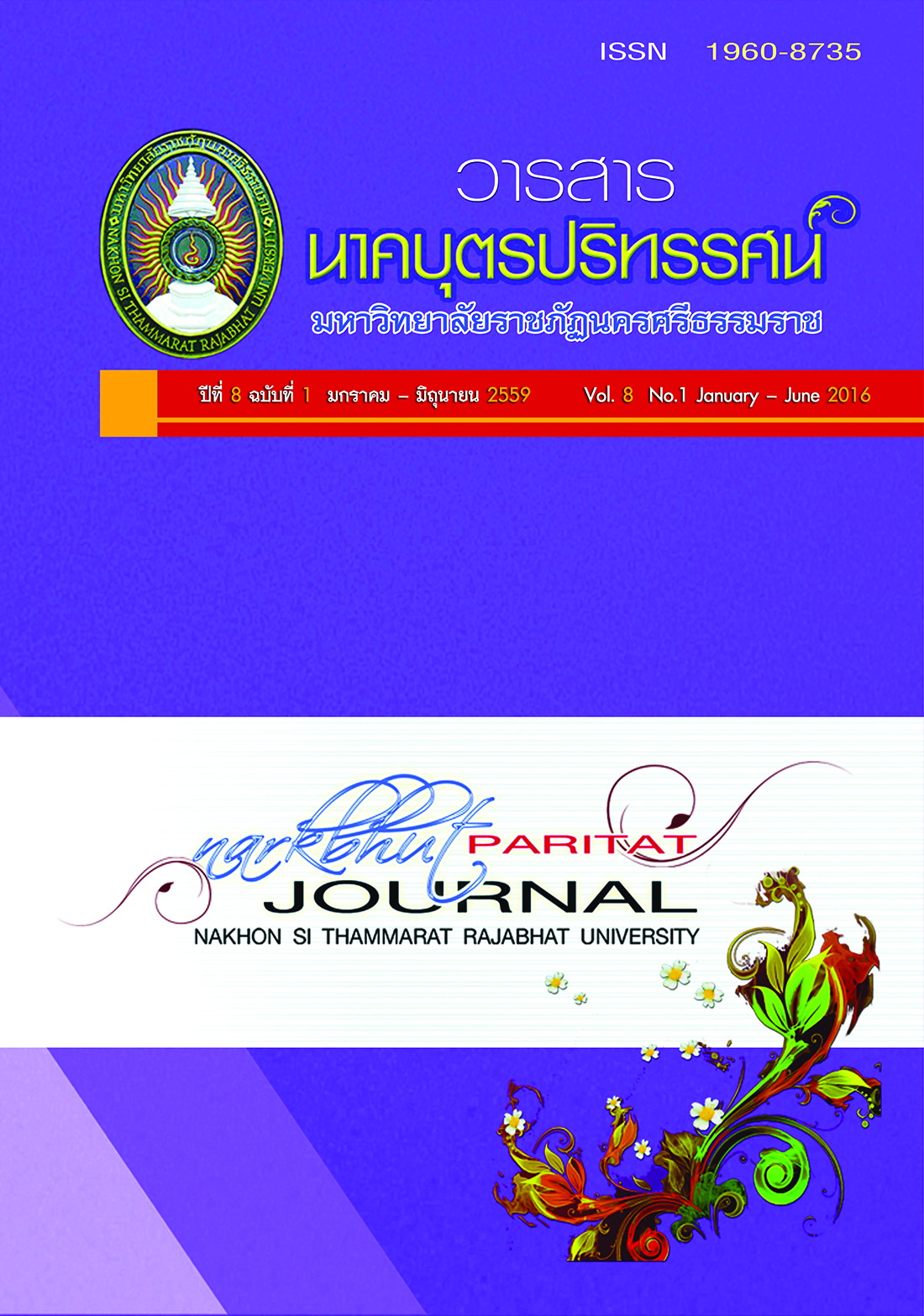การจัดกิจกรรมของเล่นภูมิปัญญาเพื่อพัฒนาเด็กปฐมวัย กรณีเทศบาลตำบลทอนหงส์ อำเภอพรหมคีรี จังหวัดนครศรีธรรมราช
Main Article Content
Abstract
บทคัดย่อไม่สมบูรณ์
The organization of recreational activities based on indigenous knowledge for ‘early childhood’ period: Case study of Tonhongsubtrict, PhromKhiri district Nakhon Si Thammarat province
The organization of recreational activities based on indigenous knowledge for ‘early childhood’ period has the following objectives:
1. To study the recreational activities that is based on indigenous knowledge to enhance development of children in early childhood period.
2. To study the development process of children in early childhood years from their play-based activities based on indigenous knowledge. The use of qualitative research is beneficial in analyzing and synthesizing the lessons derived from indigenous activities.
The results of the research demonstrated that indigenous-based play can be distinguished into 2 types: indoor and outdoor plays. Indoor plays such as ‘MaakGeb’ or Jackstone, and ‘MaakKhum’ or Mancala, are quite common. The facilitator (in most cases, teachers) must prepare the relevant items and play the game(s) as an example and chaperoning them at first. When the children fully comprehended the rules, then the adults may allow ‘free play’ period. Outdoor plays such as ‘Mah-Khankluay’ or Banana Leaf Horse, “Dern Kala” or balancing on the coconuts, and “Derntongyhong.” The design in which the activities unfolds begin with the Mah-KhanKluay first, until the children are comfortable with this play and at the same time, improving their balance and coordination and other aspects of development. Then, the activity proceeds to the second play which is “Dern Kala” that will further aids in coordination and balance development before experimenting with “Derntongyhong.” The results of recreational play development based on indigenous knowledge revealed that it helped improve fine motor development, hand-eyes coordination, emotional developments, social skills, and adaptation to various situations. Outdoor plays supported gross motor development including balancing, carrying and holding, social skills, and sequencing skills. Group-based movement activities overall enhanced recreational development in continuous aspects both at home and at school.


